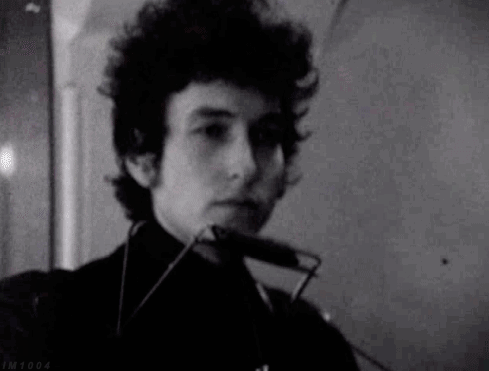Throughout the 1960s, Bob Dylan had a reputation of being a rebellious soul, often objecting to
societal norms and governmental policies. He created this disobedient status
through the writing of multiple protest songs. In the lyrics of his music, Dylan wove in many pathetic appeals that
helped convince listeners to accept his point of view. Specifically, the piece “Masters
of War” has multiple uses of imagery, analogies, and concrete language that help
Bob Dylan make an appeal to the emotions of his audience.
 First, Bob
Dylan uses multiple images throughout the song to provide vivid scenes in the
mind of the listeners. For example, he sings, “You hide in your mansion, as
young people’s blood flows out of their bodies and is buried in the mud.” Here,
Dylan’s lyrics evoke the picture of a young man at war in Vietnam dying a gruesome
death while the people who sent him to war sit comfortably in their houses of
luxury. The image of the blood of the soldier flowing into the mud gives the
listeners an idea of the atrocities that happened in Vietnam. This idea prompted
Dylan’s audience to feel empathetic toward the soldiers, the victims, and
hostile toward the politicians, the villains.
First, Bob
Dylan uses multiple images throughout the song to provide vivid scenes in the
mind of the listeners. For example, he sings, “You hide in your mansion, as
young people’s blood flows out of their bodies and is buried in the mud.” Here,
Dylan’s lyrics evoke the picture of a young man at war in Vietnam dying a gruesome
death while the people who sent him to war sit comfortably in their houses of
luxury. The image of the blood of the soldier flowing into the mud gives the
listeners an idea of the atrocities that happened in Vietnam. This idea prompted
Dylan’s audience to feel empathetic toward the soldiers, the victims, and
hostile toward the politicians, the villains. Second, Dylan
placed analogies throughout “Masters of War,” that help convince the audience
to accept his viewpoint and protest the violence of the 1960s, particularly the
Vietnam War. Specifically, Bob sang, “Like Judas of old, you lie and deceive. A
world war can be won you want me to believe.” Dylan made his appeal to pathos by
traitor Judas. He wanted the listeners to
feel betrayed by the government, hopefully leading them to question why America
was in Vietnam.
Second, Dylan
placed analogies throughout “Masters of War,” that help convince the audience
to accept his viewpoint and protest the violence of the 1960s, particularly the
Vietnam War. Specifically, Bob sang, “Like Judas of old, you lie and deceive. A
world war can be won you want me to believe.” Dylan made his appeal to pathos by
traitor Judas. He wanted the listeners to
feel betrayed by the government, hopefully leading them to question why America
was in Vietnam.
Third, Bob
Dylan used concrete language to stir feelings of negativity and disgust within his
listeners. Take, for example, the lyrics, “You put a gun in my hand and you
hide from my eyes. And you turn and run farther, when the fast bullets fly.”
One can picture a young man, inexperienced and afraid, thrown into active combat
as the “masters of war” run away, not wanting to witness the damage that they
are causing. The language that Dylan used attempted to lead his listeners to
feel ashamed of the American leaders’ careless actions. He wanted his audience
to realize that the politicians were sending unskilled young men to an early
death.
Throughout “Masters
of War,” Bob Dylan used charged language in order to make his appeals
to
pathos. The lyrics of the song helped conjure feelings of empathy, distrust,
and anger within his audience, effectively making his pathetic appeal.

Very nice post! Comprehensive and insightful. I also wonder if the use of Judas is also an appeal to outside ethos in some ways.
ReplyDeleteIn your post, you examine how Bob Dylan used images and a biblical reference to evoke pathos in his audience. I thought the pictures, actually depicting the images Bob Dylan sang about, were really effective. I would have liked to hear more about the tone of the instrumentals and tone of the song itself, and how that added to the pathos of Dylan's message. But really good post.
ReplyDelete